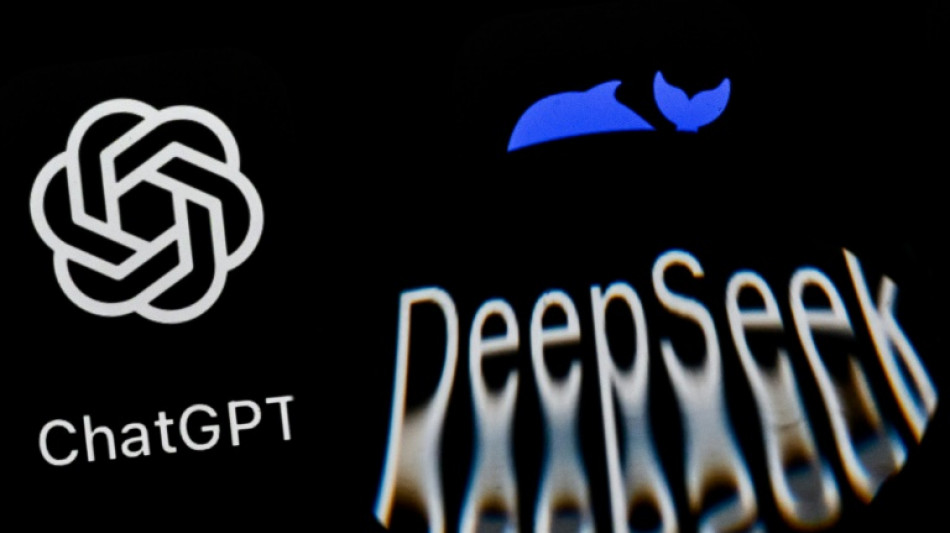
-
 Louvre heist probe: What we know
Louvre heist probe: What we know
-
Surging billionaire wealth a political threat, Oxfam warns as Davos opens

-
 Morocco fans stunned, disappointed as Senegal win Africa title
Morocco fans stunned, disappointed as Senegal win Africa title
-
Senegal fuelled by 'injustice' in AFCON final triumph, says hero Gueye

-
 Morocco coach Regragui laments 'shameful' scenes in AFCON final defeat
Morocco coach Regragui laments 'shameful' scenes in AFCON final defeat
-
Maye, Boutte wonder-catch carry Patriots past Texans

-
 Train collision in Spain kills 21, injures dozens
Train collision in Spain kills 21, injures dozens
-
Brazilians Abner, Endrick help Lyon climb to 4th in Ligue 1

-
 Barca beaten at Real Sociedad as Liga title race tightens
Barca beaten at Real Sociedad as Liga title race tightens
-
Socialist to face far-right candidate for Portugal's presidency

-
 Senegal stun hosts Morocco to win AFCON title after final walk-off protest
Senegal stun hosts Morocco to win AFCON title after final walk-off protest
-
Syria's leader agrees truce with Kurds after govt troops advance

-
 Morant shines as Grizzlies top Magic in London
Morant shines as Grizzlies top Magic in London
-
Real Sociedad end Barca winning streak to tighten Liga title race

-
 Senegal stun hosts Morocco to win AFCON title after ugly scenes mar final
Senegal stun hosts Morocco to win AFCON title after ugly scenes mar final
-
AC Milan in touch with Inter thanks to Fullkrug's first Serie A goal

-
 Lyon climb to fourth in Ligue 1 with victory over Brest
Lyon climb to fourth in Ligue 1 with victory over Brest
-
Morant shines as Grizzles top Magic in London

-
 Trump admin orders 1,500 troops to prepare for possible Minnesota deployment
Trump admin orders 1,500 troops to prepare for possible Minnesota deployment
-
Limited internet briefly returns in Iran after protest blackout

-
 South Africa declares national disaster as floods batter region
South Africa declares national disaster as floods batter region
-
Gang members in Guatemala kill seven police after prison crackdown: minister

-
 Villa's title bid rocked by Everton loss, Newcastle held at Wolves
Villa's title bid rocked by Everton loss, Newcastle held at Wolves
-
Dybala boosts Roma's Champions League hopes, Fiorentina honour Commisso

-
 Villa's title bid rocked by Everton loss, Newcastle held by Wolves
Villa's title bid rocked by Everton loss, Newcastle held by Wolves
-
'Avatar: Fire and Ash' at number one in N.America for fifth straight week

-
 Limited internet returns in Iran after protest blackout
Limited internet returns in Iran after protest blackout
-
Syria's leader agrees truce deal with Kurds after govt troops advance

-
 Smith's penalty sees Quins eliminate La Rochelle, Bordeaux secure top seeding
Smith's penalty sees Quins eliminate La Rochelle, Bordeaux secure top seeding
-
Atletico edge Alaves to strengthen Liga top-four hold

-
 Uganda president says opposition 'terrorists' in victory speech
Uganda president says opposition 'terrorists' in victory speech
-
New Zealand register first ODI series win in India despite Kohli ton

-
 Elvira wins Dubai Invitational after Lowry's last hole meltdown
Elvira wins Dubai Invitational after Lowry's last hole meltdown
-
Jeong snatches Union late draw at Stuttgart in Bundesliga

-
 Man Utd's Martinez hits back at Scholes after height jibes
Man Utd's Martinez hits back at Scholes after height jibes
-
Frank on the brink as Romero calls for unity amid Spurs 'disaster'

-
 Chile declares emergency as wildfires kill at least 15
Chile declares emergency as wildfires kill at least 15
-
Europe hits back at Trump tariff threat over Greenland

-
 Men's Fashion Week in Paris: what to watch
Men's Fashion Week in Paris: what to watch
-
McGrath goes top of slalom standings with Wengen win

-
 No Venus fairytale as Alcaraz, Sabalenka win Melbourne openers
No Venus fairytale as Alcaraz, Sabalenka win Melbourne openers
-
Iran considers 'gradually' restoring internet after shutdown

-
 Mitchell, Phillips tons guide New Zealand to 337-8 in ODI decider
Mitchell, Phillips tons guide New Zealand to 337-8 in ODI decider
-
Flailing Frankfurt sack coach Toppmoeller

-
 Kurdish forces withdraw from Syria's largest oil field as govt forces advance
Kurdish forces withdraw from Syria's largest oil field as govt forces advance
-
'Proud' Venus Williams, 45, exits Australian Open after epic battle

-
 Vonn in Olympic form with another World Cup podium in Tarvisio super-G
Vonn in Olympic form with another World Cup podium in Tarvisio super-G
-
Alcaraz kicks off career Grand Slam bid with tough Australian Open test

-
 Hosts Morocco face Mane's Senegal for AFCON glory
Hosts Morocco face Mane's Senegal for AFCON glory
-
Europe scrambles to respond to Trump tariff threat


Does "vibe coding" make everyone a programmer?
Can a complete tech novice create a website using everyday language on ChatGPT?
That's the promise, misleading for some, of "vibe coding," the latest Silicon Valley catchphrase for an advance in generative AI that some say makes computer programming as simple as chatting online.
"You fully give in to the vibes, embrace exponentials, and forget that the code even exists," OpenAI co-founder and former Tesla employee Andrej Karpathy described in early February, in a message posted on X (formerly Twitter), using the term for the first time.
"I'm building a project or web app, but it's not really coding - I just see stuff, say stuff, run stuff, and copy paste stuff, and it mostly works," he said.
The developer and entrepreneur was referring to the new generative AI models that produce lines of code on demand in everyday language, through writing or speech.
The concept of "vibe coding" remained confined to the AI community until New York Times columnist Kevin Roose claimed to have created websites and apps without any knowledge of programming.
"Just having an idea, and a little patience, is usually enough," he wrote.
The ChatGPT and Claude interfaces can write an entire program line by line on demand, as can Gemini, which launched its dedicated version, Gemini Canvas, on Tuesday.
Other generative AI platforms specifically dedicated to coding have also made their mark in recent months, from Cursor to Loveable, or Bolt, Replit and Windsurf.
"Maybe, just maybe, we're looking at a fundamental shift in how software is created and who creates it," said online marketing specialist Mattheo Cellini on Substack.
"It's unlikely to make coding irrelevant, but it may change the way developers work," suggested Yangfeng Ji, professor of computer science at the University of Virginia.
"This could lead to some job displacement, particularly for those focused solely on basic coding tasks."
Even before "vibe coding," a downturn was being seen by some in IT employment as the first effects of generative AI began to be felt.
The sector shed nearly 10,000 jobs in the US in February, according to the Department of Labor, and its headcount is at a three-year low.
- Expertise needed? -
Among code novices, many find it hard to catch the vibe.
"People who do not have programming expertise often struggle to use these kinds of models because they don't have the right kinds of tools or knowledge to actually evaluate the output," said Nikola Banovic, professor of computer science at the University of Michigan.
On social media, the few newbies who report on their "vibe coding" quickly complain that it's not as easy as some want to believe.
Without mastering computing complexities like digital directories, runtime environments or application programming interfaces (APIs), it's hard to create an app that works.
Despite his coding knowhow, Claude Rubinson, a professor of sociology at the University of Houston-Downtown, wanted to create an application for his students two years ago without tinkering with the code generated by ChatGPT.
After a lot of trial and error, the app finally worked, but "I'm convinced it wouldn't have worked if I hadn't understood the code," which allowed him to guide the interface using the appropriate language.
This brought home the importance of the "prompt": mastering the request submitted to obtain the desired result.
"Programmers have certain levels of AI literacy that allows them to get what they want out of the models," said Banovic.
Everyday users "will not know how to prompt," h warned.
G.Frei--VB




